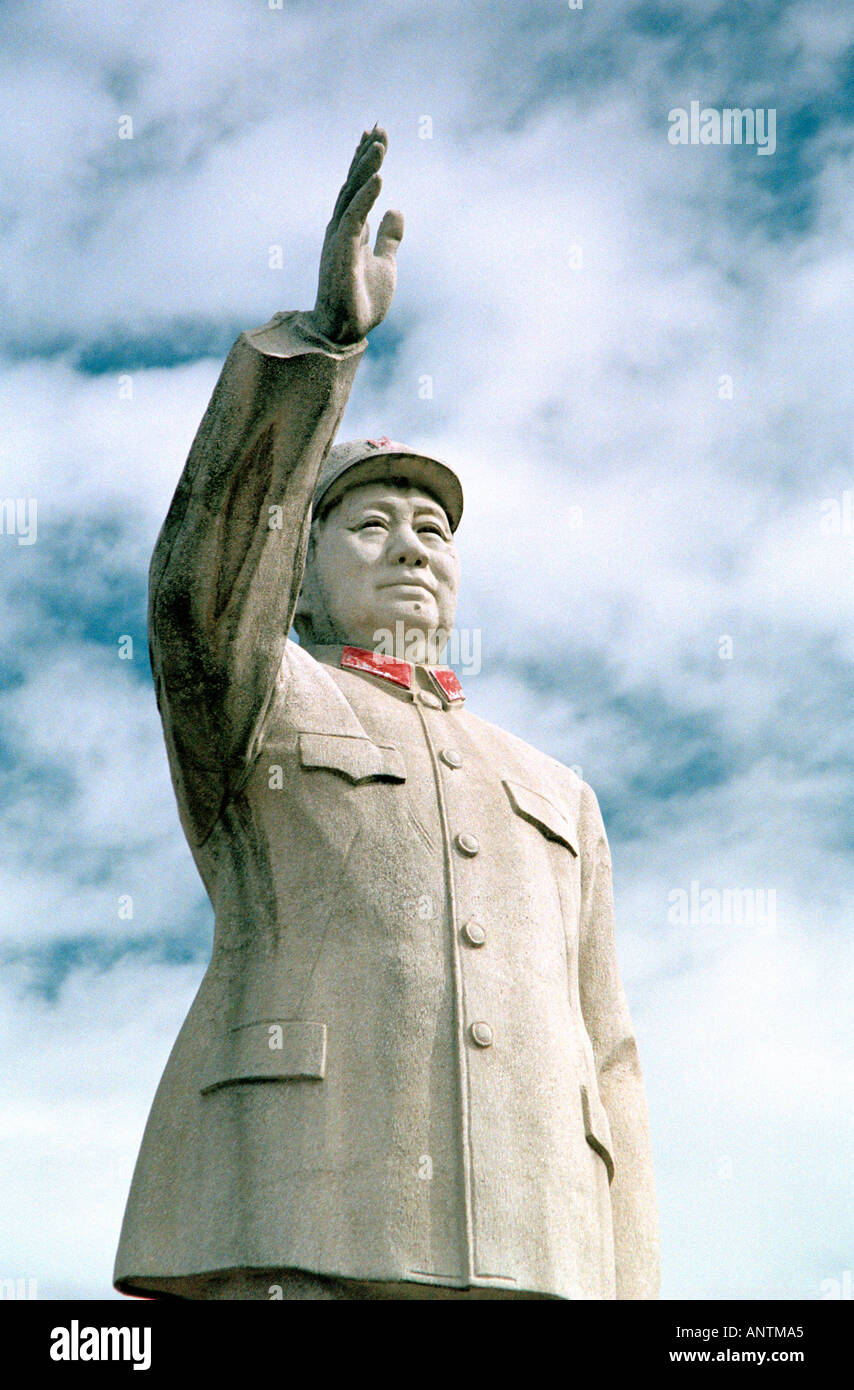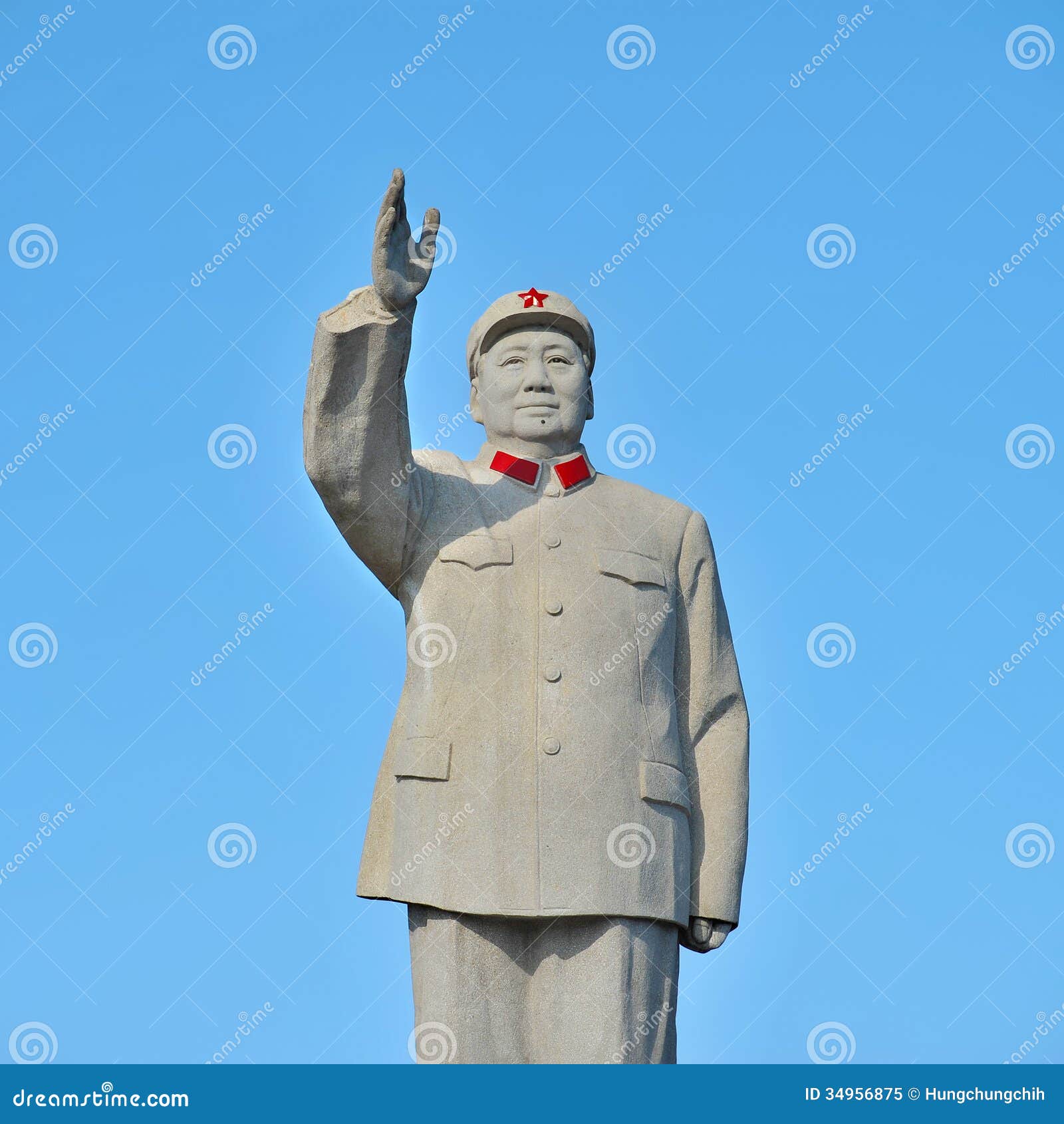Can a single man truly reshape the destiny of a nation? Mao Zedong's legacy is a testament to the profound impact one individual can have, for better or worse, on the course of history, as his policies and persona indelibly transformed China.
Mao Zedong, also known as Chairman Mao, remains one of the most influential and controversial figures of the 20th century. Founding the People's Republic of China in 1949, he ruled with an iron fist until his death in 1976. His strategies to rapidly transform China into a global power were controversial, often with devastating consequences. The most visible and arguably impactful aspect of his rule was the carefully constructed cult of personality that permeated every facet of Chinese society.
| Category | Information |
|---|---|
| Full Name | Mao Zedong (\u6bdb\u6fa4\u6771 or \u6bdb\u6cfd\u4e1c) |
| Also Known As | Chairman Mao |
| Birth Date | December 26, 1893 |
| Death Date | September 9, 1976 |
| Place of Birth | Shaoshan, Hunan Province, China |
| Political Party | Communist Party of China (CPC) |
| Key Positions | Chairman of the Communist Party of China (1943-1976) Chairman of the Central Military Commission (1949-1976) Head of State of the People's Republic of China (1954-1959) |
| Ideology | Maoism (adapted Marxism-Leninism) |
| Major Policies & Campaigns | Great Leap Forward (1958-1962) Cultural Revolution (1966-1976) |
| Legacy | Founder of the People's Republic of China; Controversial figure due to policies resulting in widespread famine and political purges; Significant influence on communist movements worldwide. |
| Reference Link | Britannica - Mao Zedong |
From the very beginning of the People's Republic in 1949 until his death, Mao's image and pronouncements were omnipresent. This cult of personality served as a powerful tool for consolidating his power, unifying the nation under a single ideology, and mobilizing the population to achieve his ambitious goals. Every aspect of life, from education and art to politics and economics, was permeated with Maoist thought, creating an environment where dissent was not only discouraged but actively suppressed.
- Your Guide Metlife Stadium Photos Best Views Seats
- Cedella Booker The Untold Story Of Bob Marleys Mother
One of the most potent symbols of Mao's cult of personality was the "Little Red Book," a collection of his quotations that became mandatory reading for every citizen. A single phrase from Mao could mobilize millions, and his words were treated with almost religious reverence. The book was seen as a source of wisdom and guidance, applicable to any situation, and its dissemination played a critical role in shaping public opinion and solidifying Mao's authority. In the old days, communist propaganda had a strong influence on the masses. However, these days propaganda is largely greeted with a shrug. Few people take it seriously anymore.
The Cultural Revolution (1966-1976) stands as a stark example of the extremes to which Mao's cult of personality could lead. This tumultuous period aimed to purge the country of "bourgeois" elements and reinvigorate revolutionary fervor. It unleashed a wave of social upheaval, with young Red Guards targeting intellectuals, teachers, and anyone deemed insufficiently loyal to Mao. The loyalty dance, a main activity during the Cultural Revolution, required participants to stretch their arms from the heart to Mao's portrait in movements originating from a folk dance popular in Xinjiang. This dance became an integral part of the Mao Zedong's cult of personality, showcasing how even artistic expression was molded to reinforce Mao's image.
The consequences of the Cultural Revolution were devastating, leading to widespread chaos, economic disruption, and the persecution of millions. Despite the suffering it caused, the Cultural Revolution solidified Mao's control and further entrenched his cult of personality. It demonstrated the power of propaganda and indoctrination in shaping public behavior and suppressing opposition.
- Rare Marilyn Monroe Photos Norma Jeanes Stunning Transformation
- Axel Schulz A Boxing Legend Grill Masters Story
Even art was co-opted to serve the cult of personality. Artists like Kiefer, who visited China in 1993, have since referenced Mao Zedong and the Cultural Revolution in their works. Public art also became a vehicle for glorifying Mao. The young Mao Zedong statue is located on Orange Isle in Changsha, Hunan. The monument stands 32 metres (105 ft) tall and depicts Mao Zedong's head. The Hunan people's government began building it in 2007 and it was completed two years later, in 2009.
Xi Jinping has stressed the importance of pushing forward the cause pioneered by comrade Mao Zedong and called for efforts to build China into a stronger country and rejuvenate the Chinese nation on all fronts. However, the modern approach to commemorating Mao is a far cry from the fervent displays of devotion that characterized his era. China is marking this Thursdays anniversary of his birth with relatively understated celebrations, a sign of a changing political landscape.
Despite the official shift away from the intense cult of personality, Mao remains a revered figure in China. His image still adorns banknotes, and his mausoleum in Tiananmen Square is a site of pilgrimage for many. The legacy of Mao is complex and contradictory, representing both tremendous progress and immense suffering. He is credited with unifying China, ending foreign domination, and laying the foundation for its economic rise. However, his policies also led to widespread famine, political purges, and the suppression of individual freedoms. His rule was marked by disastrous policies like the Great Leap Forward and the cultural revolution, resulting in millions of deaths.
The founding ceremony of the People's Republic of China was held in Tiananmen Square on October 1, 1949. This historic moment not only marked the birth of new China, but also the Chinese. Security guards salute near wreaths in front of a statue of the late leader, a common scene during commemorative events.
Even today, echoes of Mao's era can be found in the emphasis on centralized control and ideological conformity. His famous quote, "Control of information and control of the gun are the two pillars of communist party power," remains relevant in understanding the Chinese political system. While the methods of control have evolved with technology, the underlying principle of maintaining authority through information management and security remains consistent.
Outside China, Mao's legacy is viewed with more critical eyes. Some regard him as a ruthless dictator responsible for the deaths of millions, while others admire him as a revolutionary leader who liberated China from foreign influence and empowered the peasantry. Elon Musk, who has over 219 million followers on X, formerly known as Twitter, retweeted a post saying Soviet revolutionary Joseph Stalin, former Chinese Communist Party Chairman Mao Zedong and Hitler.
The Chinese people continue to reflect on Mao's complex legacy, balancing pride in the nation's achievements under his leadership with a recognition of the immense human cost. The elderly party member from central Chinas Henan province, who came to the Shaoshan Mao Zedong memorial museum, said that it was a special honor to come to Maos former residence on the special day to pay homage to the great leader. The balancing act involves acknowledging the positive contributions while learning from the mistakes of the past. As China continues its rise on the world stage, understanding the legacy of Mao Zedong remains crucial to comprehending the nation's present and future.
The sentiment, "Your victory once again demonstrates that a nation, big or small, can defeat any enemy, however powerful, so long as it fully arouses its people, firmly relies on them, and wages a peoples war," reflects the lasting impact of his ideology. It is a sentiment that continues to resonate with those who believe in the power of collective action and national self-determination.
While official pronouncements might be more measured, the echoes of the past linger. "On behalf of our great leader, chairman mao, the central committee of the party and the government of the peoples republic of china, i most warmly salute the workers, peasants and soldiers, the revolutionary teachers and students, the revolutionary red guards and other militant youth organizations, the revolutionary people of all," is a stark reminder of the total control and all-encompassing nature of Mao's influence. Salute the April 8th martyrs, and remember the sacrifices made in the name of revolution.
The cooperative medical systems, known as sistemi sanitari cooperativi rurali, provided subsidized healthcare to rural residents. This, alongside other initiatives, aimed to improve the lives of ordinary citizens and create a more equitable society. During ceremonies such as those at Mao's memorial, the act of paying respects is deeply rooted in tradition. For example, some might kowtow 81 times, their highest salute to Mao. The ceremony finishes with a prayer said and three repetitions of the Amitabha Buddha mantra.
- Epic Lion King Images Fun Facts You Wont Believe
- Your Guide To Local News Cafes Find Bulldog News And More


